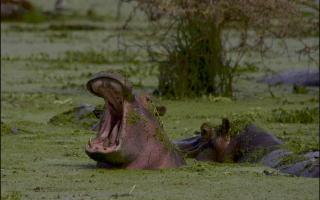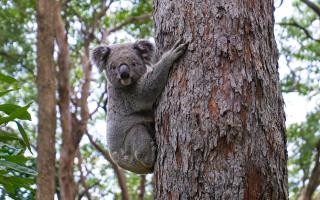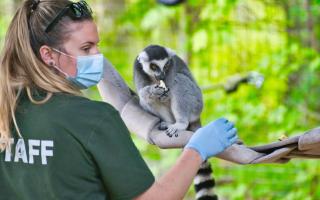Wildlife Conservation Volunteering Guide (Guidebook)

-
1

Wildlife Conservation Today
Within just 50 years after those green decades we lost about 68% of our wildlife populations by 2016 and irreparably damaged our natural world.
-
2

4 Types of Wildlife Conservation
4 different types of wildlife conservation systems for: On-ground, off-site, community-driven, and policy and advocacy -
3

Ripple Effect: How Wildlife Conservation Affects Us
Essential ecosystem services and biodiversity functions sustain our daily lives. By protecting wildlife, we invest in our own health and happiness.
-
4

Unmasking the Perils: Exploring the Main Threats to Wildlife
Loss and fragmentation of wild habitats, unrelenting rise in climate change, pollution, illegal wildlife trade, and invaive speacies are the main threats. -
5

Becoming Wildlife Guardians: Empowering Yourself in Conservation Efforts
Contribute by supporting wildlife conservation organisations, sustainable practices for plastics and agriculture, scientific research, and spreading awareness. -
6

Remarkable Success Stories: Inspiring Wildlife Conservation Projects That Have Made a Difference
Conservation projects in China, USA, India, Costa Rica, South Africa, and other countries have made extraordinary positive impacts on ecosystems worldwide. -
7

Incredible Benefits of Volunteering in Wildlife Conservation
You get to make a tangible impact on the world, experience beautiful nature, learn new skills, build connections, there is a lot of personal growth, and more. -
8

Dire Consequences of Neglecting Wildlife Conservation
Altered vegetation dynamics for us, heightened risks of zoonotic diseases, pest increment, disruption of our cultural heritage, valuable natural knowledge, etc. -
9

Skills and Qualifications for Volunteering in Wildlife Conservation
Genuine passion for wildlife, basic knowledge of conservation issues, readiness to do fieldwork & research, and enthusiasm for outdoor activities -
10

Fostering Collaboration: How Wildlife Conservation Organizations Work with Local Communities
Engaging local communities is very important. Organisations also remain active in resolving human-wildlife conflicts & promoting sustainable living initiatives. -
11

Ethical Considerations in Wildlife Conservation: Balancing Conservation and Animal Welfare
Respecting rights of indigenous communities, preserving genetic diversity, and ensuring long-term ecosystem health are vital for ethical wildlife conservation. -
12

Climate Change's Impact on Wildlife and Conservation Efforts
Climate change is altering habitats and forcing species to change their temperature ranges, disrupting ecosystem interactions, increasing disease spread, etc. -
13

Overcoming Challenges: The Obstacles Faced by Wildlife Conservationists
Conservationists grapple with tasks of restoring habitat loss, human-wildlife conflict, illigal wildlife trade, environmental pressures, insufficient funds, etc -
14

Innovations in Wildlife Conservation: Harnessing Technology for a Sustainable Future
Technologies like satellite imageries, UAV’s, GPS tracking and telemetry, camera traps and acoustic monitoring, etc can be used to innovate in conservation. -
15

Wildlife Conservation Volunteering Projects: Duration and Impact
Short-term, medium-term, and long-term wildlife conservation projects are affected by various factors like project goals, needs, funding etc. -
16

Wildlife Conservation Volunteering in Urban Areas: Making a Difference Close to Home
The need for conservation extends beyond pristine natural environments. Urban areas also possess unique ecosystems and human-wildlife interactions. -
17

Supporting Wildlife Conservation Efforts: Making a Difference from Afar
Many people are unable to hands-on volunteer for many reasons. You can volunteer from afar by leveraging your passion, skills, knowledge, and resources. -
18

Wildlife Conservation Volunteering: Understanding Risks and Ensuring Safety
While wildlife conservation offers incredible opportunities, it's essential to understand the risks too- animal encounters, natural hazards, zoonotic diseases -
19

Volunteering in Wildlife Conservation: Do You Need Prior Experience?
Understand how no prior experience is needed for volunteering, how training occurs, and how you can contribute because of your prior experience. -
20

Understanding the Financial Considerations of Wildlife Conservation Volunteering
Volunteering may be free but other expenditures include program fees, travel expenses, accommodation, insurance, personal expenses, etc. -
21

Personal and Professional Growth through Wildlife Conservation Volunteering
You build connections and increase your environmental awareness, you learn leadership and teamwork, your cultural cultural understanding increases, etc. -
22

Power of Volunteerism: Safeguarding Endangered Species
Through impactful advocacy, dedicated fieldwork, rescue and rehabilitation, and community enganemement, volunteers can amplify the voices of endangered species. -
23

Wildlife Conservation Volunteering Abroad: Exploring the Pros and Cons
Take everything into consideration including learning opportunities, cultural exchanges, finances and emotional challenges as you volunteer abroad. -
24

Volunteering for Wildlife Rehabilitation Centers: What to Expect
You will be completing processes like application, orientations, and training, followed by daily tasks, animal care, teamwork, etc. -
25

Engaging Volunteer Conservation Projects for Families and Children
Volunteer as a family and participate together in activities like beach cleanups, community gardening, habitat restoration, tree planting, citizen science, etc. -
26

Volunteering in Wildlife Conservation: Skills and Qualifications
No qualifications are necessary but life skills will help you. Skills related to research, outdoor survival, communication, adaptability, and conservation. -
27

Embark on an Unforgettable Wildlife Conservation Adventure: Your Guide to Preparing for a Volunteer Trip
Process you should follow to prepare for volunteering- Research your destination, project requirements, personal healthcare, pack smartly, and 4 more steps.. -
28

Volunteering in Wildlife Conservation: Captive vs Wild Settings
Choose between 2 wildlife volunteering choices - captive settings in wildlife sanctuaries, rescue centers, zoos, etc or wild settings- field research, national parks, etc. -
29

The Challenges and Rewards of Wildlife Conservation Volunteering
Meet challenges of wildlife conservation like physical demands and cultural adaptations. Experience rewards as well - personal growth & connection with nature. -
30

Exploring Wildlife Conservation in Africa: A Journey of Conservation and Adventure
Volunteer for African Wildlife - Wake up to sounds of nature, go on game drives or walking safaris, and engage in hands-on activities like wildlife tracking. -
31

Exploring Wildlife Conservation Volunteer Opportunities in Asia
Volunteer for Asian wildlife - for Pandas in China, Sea Turtles in Sri Lanka, Elephants in Thailand, Orangutans in Borneo, Snow Leapords in Nepal, etc. -
32

Exploring South America: A Journey into Wildlife Conservation
Volunteer for South American Wildlife - Destinations like the Amazon Rainforest, Galapagos Islands, Patagonia -
33

Indispensable Role of Volunteers in Wildlife Conservation Education
Facilitate hands-on learning, enhance visitor experiences, support research initiatives, etc. Your passion will help in fostering connections with nature.

